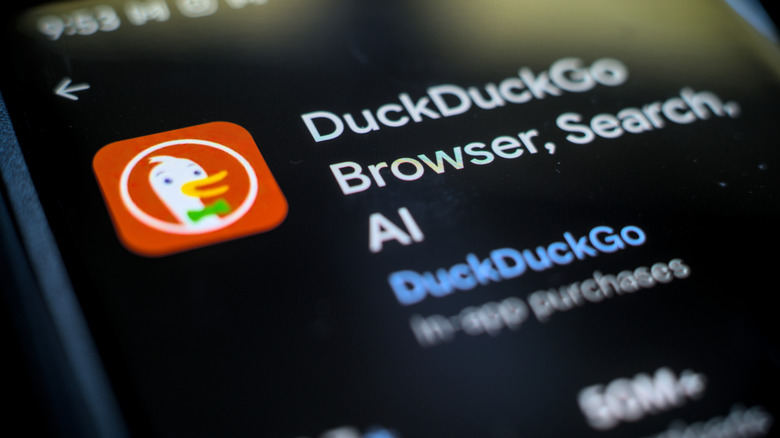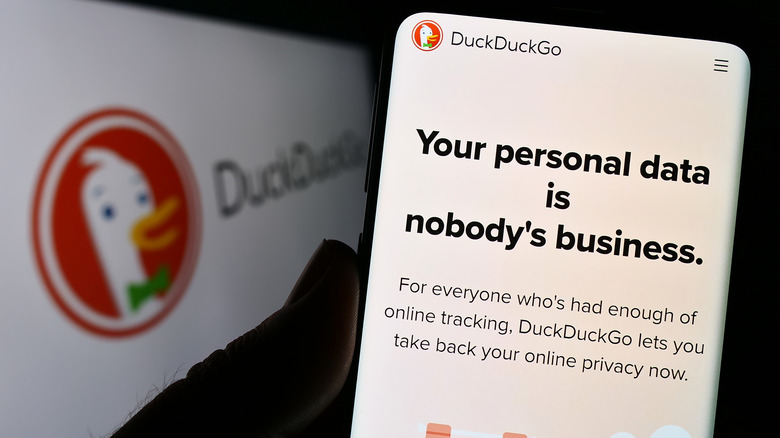Tired Of Google's Gemini Powered Search Summaries? Try This Search Engine Alternative
If you're regularly using Google, you may have noticed that the search results are not what they used to be. Google is pushing for AI integration in its search engine, and the results are not always the best. The AI seems to summarize information from multiple sources based on the user's search query; however, that information is not always accurate or relevant. The AI-generated answers you see at the top of the page may seem convenient at first, but they often miss the point, or are misleading and, in some cases, completely wrong.
The integration of AI answers in Google's search engine is a series of dips in Google's global search market share as more users are turning to the alternatives. Some users want to have control over their search, and they want to deal less with the AI interface. One such alternative that's gaining popularity is DuckDuckGo. This search engine is known for its privacy and clean interface. Of course, DuckDuckGo jumped on the trend and is integrating AI in its search as well, but you, the user, have full control over it. Let's explore how this search engine alternative works.
What is DuckDuckGo?
DuckDuckGo is a search engine that has been around since 2008. The original idea behind its creation was a search engine that respects the privacy of users, is simple, and gives unbiased results. How does a search engine achieve all this? DuckDuckGo, unlike Google, doesn't keep track of your search history. It won't store your personal information, and it doesn't build a profile based on your previous searches. That means you won't get AI-tailored search engine results specifically for you.
Although DuckDuckGo has its own web crawler called DuckDuckBot, it's very limited. Instead, this search engine aggregates search results from multiple web crawlers such as Bing, Yahoo, and Wikipedia. The partnership with Microsoft allows DuckDuckGo to use Bing's index to power its results. That means DuckDuckGo has access to the same sources as Google, but it applies its own ranking algorithm, filters, and design. If you're concerned about Microsoft being involved, you shouldn't worry too much. DuckDuckGo uses some of the Microsoft search results, but it doesn't share any personal data in return. They have a very strict privacy agreement in place.
How to search DuckDuckGo without AI
DuckDuckGo isn't hiding the fact that they're using AI-generated content too. However, they have a very different approach to AI. Instead of integrating AI into every search result, whether you want it or not, it gives users full control. You can opt to turn it on or off, and even decide how the AI will be used in your searches.
Instead of embedding AI answers at the top of every search, as Google does, DuckDuckGo offers optional AI tools. The DuckAssist is a feature that uses AI and generates short summaries from reliable sources such as Wikipedia and Britannica. Unlike Google's block of AI-written text, DuckAssist keeps the AI answers very short and to the point. It works only with certain straightforward questions you might ask. You also have an option to turn DuckAssist off and not get the summaries at all.
If you do want to use AI, but you're worried about privacy, DuckDuckGo has a solution. It provides a separate tool, called AI Chat, that gives you access to AI models such as OpenAI's GPT-4 or Anthropic Claude. However, this tool is independent of search, and it's designed with privacy in mind. None of the chats with AI are stored, and your identity isn't tracked. Also, DuckDuckGo can protect you from seeing images made by AI. Although this feature is new, and it's not entirely perfect (some AI-generated images still slip through), it's a very neat solution to the problem. Just toggle the settings to exclude AI-generated images, and all you'll get in your search results are real photos and illustrations made by real artists.


